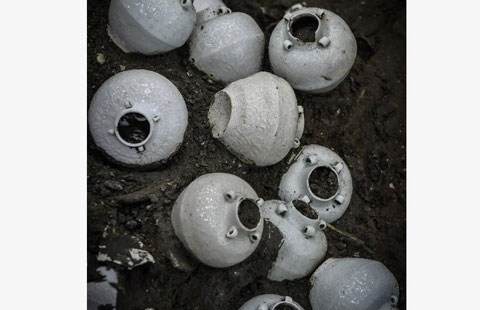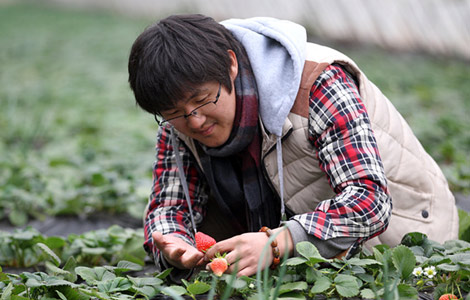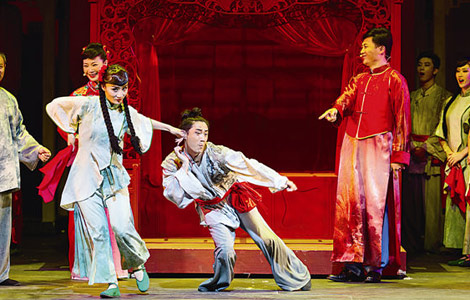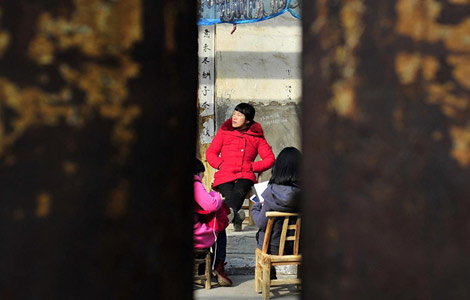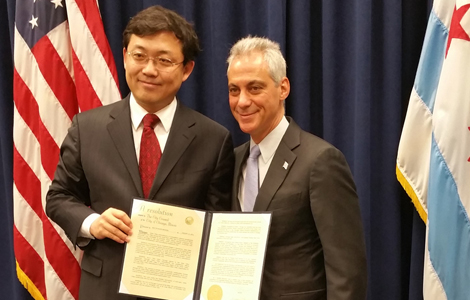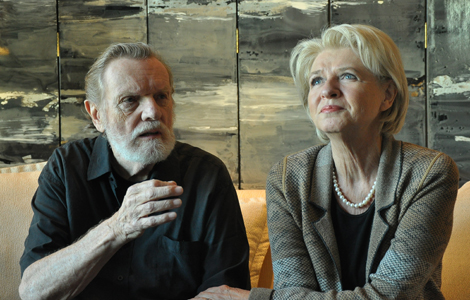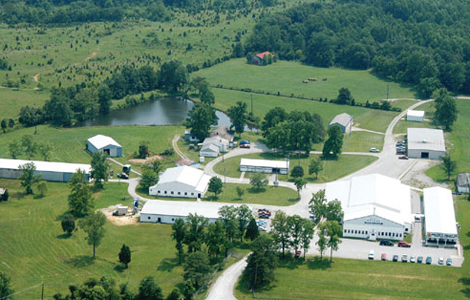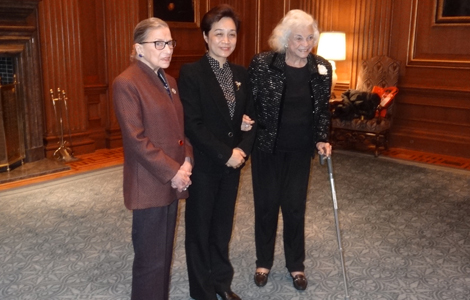Cuban ballet prodigy brings show to China
Updated: 2015-02-02 05:01
By Mike Peters in Beijing(China Daily Latin America)
|
||||||||
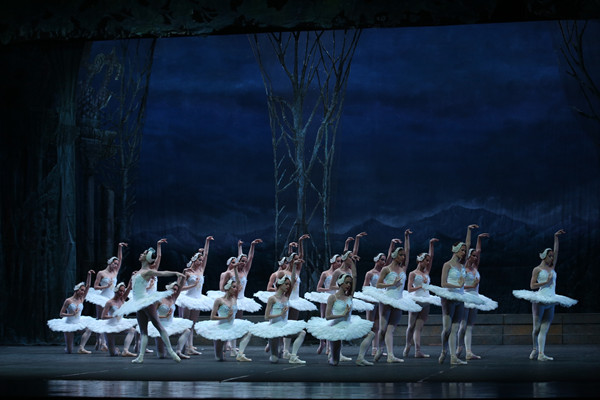 |
|
Dancers of Cuba’s Prodanza Ballet Academy rehearse Swan Lake at the Shanghai Grand Theatre during an earlier tour to China. Prodanza troupe’s director Laura Alonso, who is quite proud to be the incubator of Cuba’s best ballet talent, has brought groups of top Cuban dancers to China twice before, and she’s excited about the ballet company’s friendly reception in the country. Provided to China Daily |
Most people who catch their mothers stealing from them feel abused and even angry, but most people aren't Laura Alonso.
The director of Cuba's Prodanza Ballet Academy has a rather famous mother, the ballerina Alicia Alonso, who with her late father founded the dance company that has won international acclaim as the Ballet Nacional de Cuba.
"Most of my dancers are young — I get them trained, then they go to the outside. Or my mother steals them!" exclaims Laura Alonzo, speaking to China Daily from her hotel in Wuhan, where her Prodanza troupe is currently halfway through a three-month tour of China. "And when I tell her that, she just says, "Aren't you proud?"
In fact, Laura Alonso is quite proud to be the incubator of Cuba's best ballet talent. Lauded as a ballet teacher, coach, and expert at staging the renowned classics – skills she says she inherited from her father Fernando.
This is the third time Alonso has brought some of Cuba's most talented dancers to China, and she's excited about the ballet company's friendly reception in China.
"Audiences are fascinated by the technique and the productions. They need more knowledge – they know Swan Lake but they haven't seen The Corsair, Don Quixote, Giselle, etc. I am trying to get them to know more. It's like sitting in a restaurant, where you have so many dishes to choose from. They should have so many ballets to choose from.
Alonso has brought groups of top Cuban dancers to China twice before, but "Don't ask me when or how long ago!" she laughs.
"Last time I was in China, everything was very gray. Now, it's full of life. The new buildings are fabulous – the architecture is impressive. People are full of energy."
Podranza's usual energy is flagging a bit this morning, after an extended reception dinner with local officials in Wuhan.
"Oh my gosh, the ganbei! I don't drink or smoke, so it almost drove me crazy," she says, laughing. "Somebody showed me how to fill the glass with water so they would not keep filling with the liquor. But everyone is so friendly and warm, you get caught up in it."
Alonso, who has included a two-hour production of Swan Lake in the current tour as a tribute to her parents, says that as a child, her famous mother never made her feel like she was growing up with a legend
"She was just my mom. Other people always think it's a big deal. To me, it's normal. Doesn't every mother dance?
"What she is,"Alonso says of her 93-year-old mother, "is BRAVE. I have never met a person who has more courage than her. She has danced blind now for a long time. I remember she once danced in Canada with a fractured ankle. It was Coppelia."
While Alonso says she always admired her mother's example, it was her father who pushed her to dance: "He needed dancers in the corps de ballet – I was 11 and I was there. Cuba didn't have many dancers at that point.
"But I was lucky in the family I had: I learned performing from mother, teaching from my father. My uncle was a choreographer – he did a very famous Carmen. My son is now a choreographer."
While the Soviet Union obviously had a major impact on Cuban life for many years, including the arts, Alonso says she doesn't see a huge Russian imprint on Cuban ballet.
"Not really. My father and uncle made a study of techniques in different schools to develop what is now the ‘Cuban school'," she says. "They took big jump from the Russians, flirting and passion from the Italians – and a lot of beats with your feet from the Danish school. So it's a mixture of everything from the other schools, which are very old. This is a new one, and seems to be working very well.
"Cubans, we are fiery and like to dance — full of joy."
Alonso says she feels lucky to be working at what she likes.
"I get to travel because of it – and on top of that, they pay me. How lucky can you get?"
Born in New York but a longtime resident of Havana, Alonso applauds US President Barack Obama's initiative to normalize relations with Cuba.
"It's about time," she says. "I have the feeling when I'm in the US – I still go for two months every year — that the people want it to be changed.
As an award-winning teacher, Alonso says she does not find it difficult to attract young dancers to a traditional art form like ballet.
"But I do find it difficult to get them to concentrate on working — they want instant gratification, no sweat," she says.
"If you want to be good at something, you have to sweat it out."
mikeperters@chinadaily.com.cm
Most Viewed
Editor's Picks

|

|

|

|

|

|
Today's Top News
Top-level lab gears up to study Ebola virus
Jan manufacturing PMI falls to 28-month low
Central China city allows 72-hour visa exemptions
Beijing to build Universal Studios
Head of China Minsheng Bank resigns
78% of China's luxury spending done overseas
Mexico suspends high-speed train project
Alibaba may face class-action suit
US Weekly

|

|
